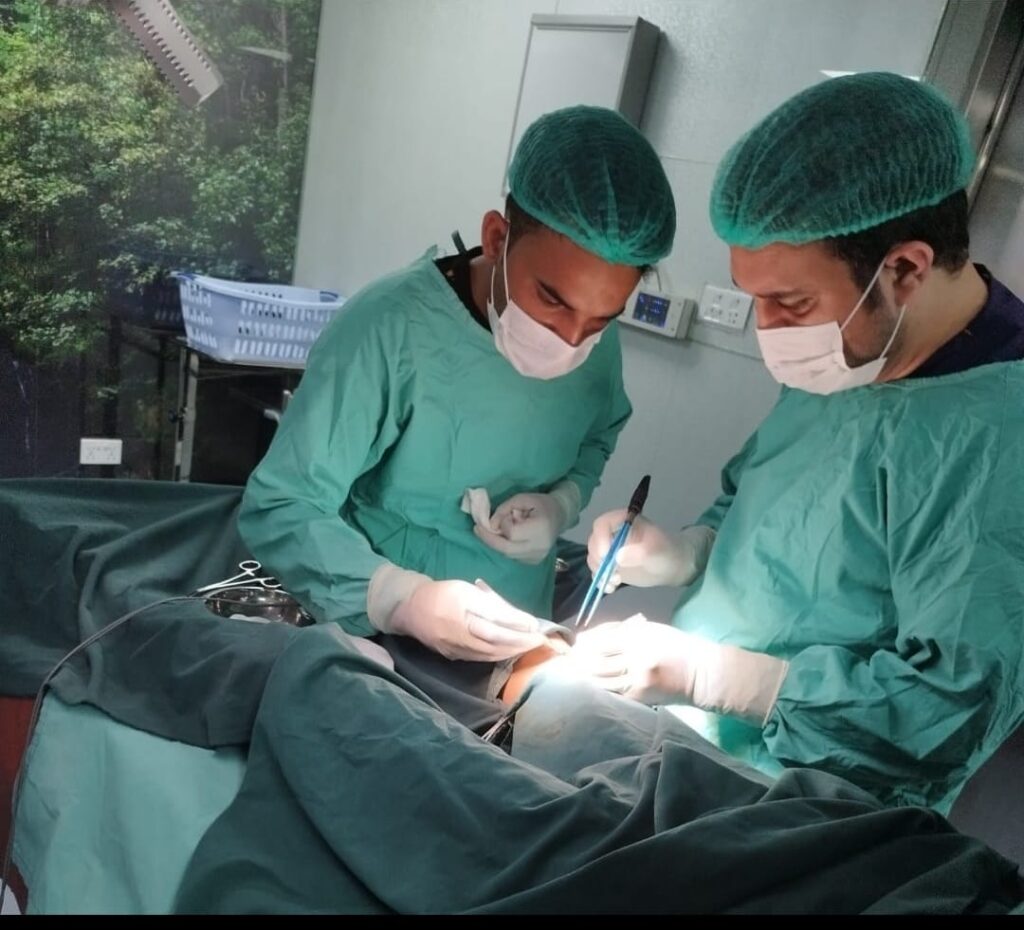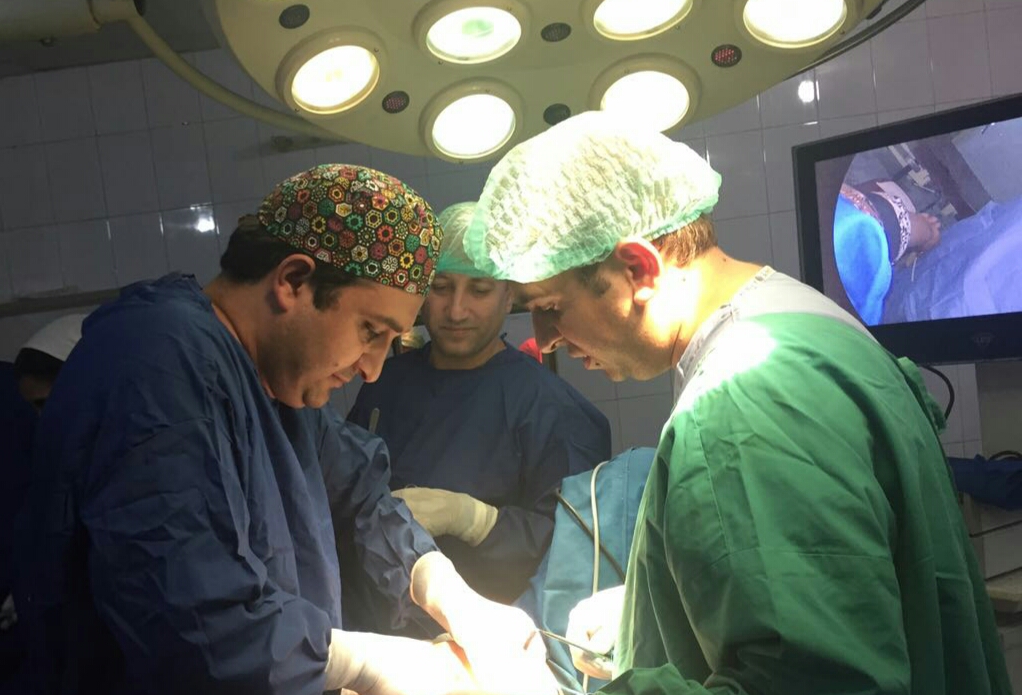- contact@laparoscopyadvice.com
- General Practice Hospital, G-9/2 Islamabad
- Mon - Fri: 10:00 am - 7:00 pm
Visiting Hours
| Mon - Fri: | 8:00 am - 8:00 pm |
| Saturday: | 9:00 am - 6:00 pm |
| Sunday: | 9:00 am - 6:00 pm |
Gallery Posts






| Mon - Fri: | 8:00 am - 8:00 pm |
| Saturday: | 9:00 am - 6:00 pm |
| Sunday: | 9:00 am - 6:00 pm |







Introduction
Colon cancer, also known as colorectal cancer, is a malignant tumor that develops in the colon or rectum, which are parts of the large intestine. It is one of the most common types of cancer worldwide, with significant morbidity and mortality rates. Colon cancer typically arises from precancerous growths called polyps, which can develop into cancer over time if left untreated.
Understanding Colon Cancer
Colon cancer encompasses various types, including adenocarcinoma, carcinoid tumors, and lymphomas. Each type presents unique characteristics and challenges, influencing the course of treatment and prognosis.
Different Types: Adenocarcinoma, Carcinoid Tumors, and Lymphomas
Exploring the features of adenocarcinoma, carcinoid tumors, and lymphomas provides insights into the diverse nature of colon cancer and the specific challenges associated with each type.
Causes and Risk Factors
The exact causes of colon cancer are multifaceted, involving genetic, environmental, and lifestyle factors. This section explores these factors and identifies individuals at a higher risk.



Signs and Symptoms
Recognizing the signs and symptoms of colon cancer is crucial for early intervention. From changes in bowel habits to unexplained weight loss, understanding the variations based on the stage of cancer aids in prompt medical attention.
Variations in Symptoms Based on the Stage of Cancer
Distinguishing between symptoms based on the stage of colon cancer assists healthcare professionals in tailoring appropriate diagnostic and treatment plans.
Diagnosis
Accurate diagnosis of colon cancer involves a combination of clinical evaluation, imaging studies, and biopsy. This section explores the diagnostic procedures and emphasizes the role of colonoscopy, imaging studies, and biopsies in early detection.
The Role of Colonoscopy, Imaging Studies, and Biopsies
Underscoring the importance of regular screenings and diagnostic tools ensures early detection and improves the chances of successful treatment.
Treatment Options
Managing colon cancer includes various modalities, such as surgery, chemotherapy, and targeted therapy. This section explores these options, offering individuals a comprehensive view to make informed decisions about their treatment.
Considerations for Surgery, Chemotherapy, and Targeted Therapy
Delving into surgical interventions, chemotherapy regimens, and targeted therapy considerations provides individuals with the necessary insights for making decisions regarding their treatment.
Impact on Quality of Life
A diagnosis of colon cancer can have profound effects on an individual’s quality of life, both physically and emotionally. Understanding these effects and exploring coping mechanisms are essential aspects of comprehensive cancer care.
Coping Mechanisms and Support Systems
Highlighting the availability of support groups, counseling services, and resources for coping with the emotional impact of colon cancer contributes to a holistic approach to cancer care.
Importance of Long-Term Follow-Up Care and Monitoring
Regular follow-up appointments and monitoring help detect any potential recurrence or long-term effects of treatment, ensuring ongoing health and well-being.
Prevention Strategies
While not all cases of colon cancer can be prevented, certain lifestyle and dietary recommendations may reduce the risk. This section outlines steps individuals can take to maintain colon health.
Lifestyle and Dietary Recommendations for Colon Cancer Prevention
Providing practical recommendations on maintaining a healthy lifestyle, including regular exercise, a diet rich in fruits and vegetables, and avoiding tobacco and excessive alcohol consumption, empowers individuals to take proactive steps towards colon cancer prevention.
Colon Cancer Awareness and Advocacy Raising awareness about colon cancer is crucial for early detection and improved outcomes. Engaging in advocacy for research and support contributes to a broader effort in combating colon cancer.
The Significance of Raising Awareness About Colon Cancer Underscoring the importance of awareness campaigns and education in communities helps dispel myths and encourage proactive health measures.
Frequently Asked Questions (FAQs)
Screening for colon cancer typically begins at age 45 or earlier if there are risk factors or symptoms. Consultation with a healthcare provider helps determine the appropriate screening schedule.
Some cases of colon cancer have a hereditary component. Individuals with a family history of colon cancer or certain genetic syndromes may have an increased risk.
A diet rich in fiber, fruits, and vegetables and low in red and processed meats may contribute to a lower risk of colon cancer. Adequate hydration and regular exercise also play a role.
Yes, individuals with inflammatory bowel diseases such as Crohn’s disease or ulcerative colitis may have an elevated risk of developing colon cancer. Close monitoring and early intervention are essential for this population.
| Mon - Fri: | 9:00 am - 7:00 pm |
| Saturday - Sunday: | Off |
Copyright 2023 Adil's Laparoscopy World | Powered by Dynaamx